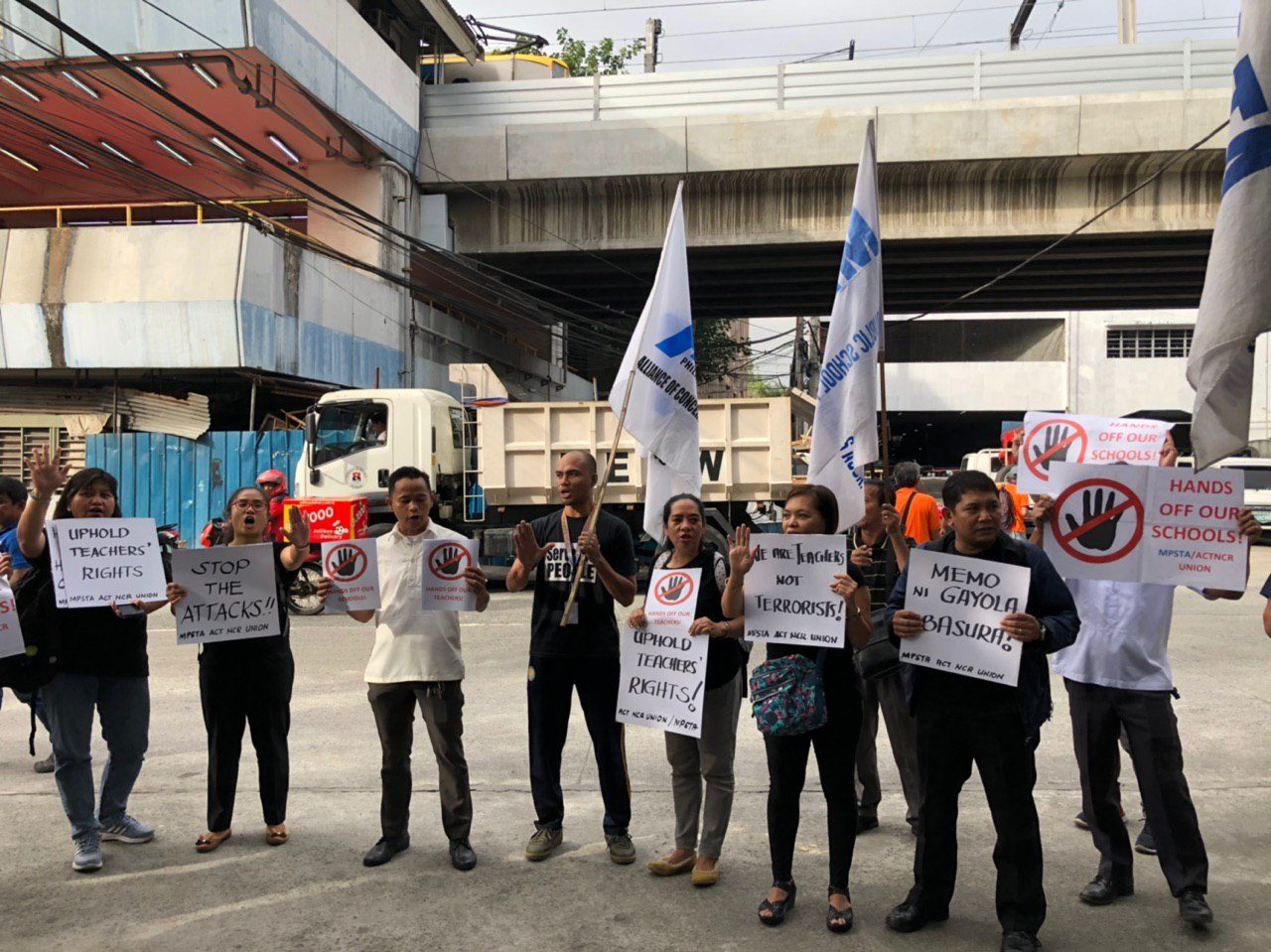SUMMARY
This is AI generated summarization, which may have errors. For context, always refer to the full article.

MANILA, Philippines (UPDATED) – Police may claim that their list of members of the progressive group Alliance of Concerned Teachers (ACT) will not be used illegally, but the simple act of drawing up a list is already illegal, a lawyer said on Monday, January 7.
Human rights lawyer Romel Bagares told Rappler that the list itself is illegal because “there is no law saying membership in ACT is a crime.” (READ: Teachers to PNP, DepEd: We’re not terrorists)
Bagares said this violation of the teachers’ right to privacy is ripe for the filing of a petition for a writ of habeas data.
“Yes, there is already an admission that they are doing or will do surveillance. That’s already gathering information without any basis,” he said.
What list? The Manila Police District previously issued an intelligence memorandum which ordered cops to “conduct an inventory” of all educators who are members of ACT. This followed the earlier alleged “Red October” surveillance of both police and the military to monitor schools whose students they suspected of being recruited to rebel groups.
“Any person whose right to privacy in life, liberty, or security is violated or threatened by an unlawful act of any official or employee, or of a private individual or entity engaged in the gathering, collecting, or storing of data or information may seek the extraordinary remedy,” said Bagares, referring to the definition of the writ of habeas data.
A petition for a writ of habeas data may be filed with the proper court. If the writ is granted, the judge or justice can order “the deletion, destruction, or rectification of the erroneous data or information and grant other relevant reliefs as may be just and equitable.”
ACT Representative France Castro told Rappler on Monday that they plan to file a petition for the Writ of Habeas Data.
“The Philippine National Police (PNP) is supposed to protect our rights to privacy [and rights to] self organization but they are the ones violating it,” Castro said in a text message.
The danger of the list. National Capital Region Police Office chief Director Guillermo Eleazar told Rappler on Monday that they were merely compiling the list for “future reference, for use in possibly connected police programs.”
Eleazar defended the list as just a repository of information.
But Bagares said, “Given the historical associations of such lists, just the thought that your name might be on that list is already threatening enough.”
In the Duterte administration, the police’s practice of compiling a drug list or a list of people who are suspected of having drug links is being challenged before the Supreme Court.
Bagares also cited the 2008 Philippine Report of former United Nations special rapporteur on arbitrary executions Philip Alston, which stated that the human rights defenders who appeared on a list were either threatened or killed. – Rappler.com
Add a comment
How does this make you feel?
There are no comments yet. Add your comment to start the conversation.